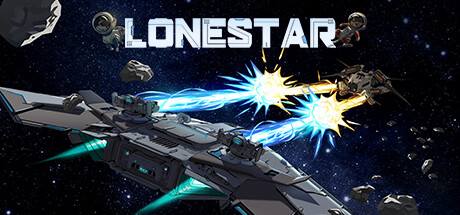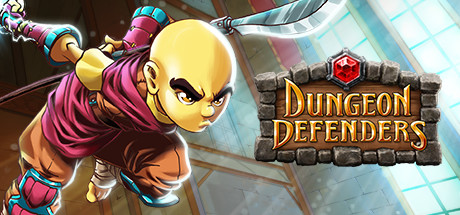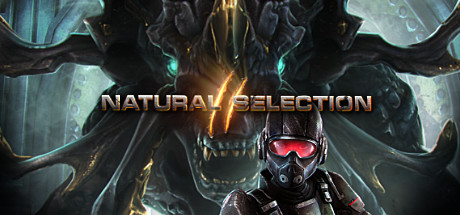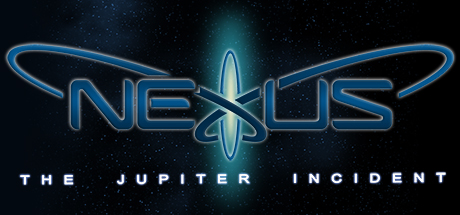
27
Players in Game
1 819 😀
165 😒
87,44%
Rating
$12.99
LONESTAR Reviews
LONESTAR is a strategic Roguelike spaceship deckbuilder. As a bounty hunter, you will capture criminals scattered across the universe. Win the shockwave battle to gain rewards and vacations. Find treasures, customize spaceships, unlock talents, defeat the felons and be a legend!
| App ID | 2056210 |
| App Type | GAME |
| Developers | Math Tide |
| Publishers | Thermite Games |
| Categories | Single-player, Steam Cloud, Full controller support |
| Genres | Indie, Strategy, RPG, Adventure, Early Access |
| Release Date | 18 Jan, 2024 |
| Platforms | Windows |
| Supported Languages | English, Simplified Chinese |

1 984 Total Reviews
1 819 Positive Reviews
165 Negative Reviews
Very Positive Score
LONESTAR has garnered a total of 1 984 reviews, with 1 819 positive reviews and 165 negative reviews, resulting in a ‘Very Positive’ overall score.
Reviews Chart
Chart above illustrates the trend of feedback for LONESTAR over time, showcasing the dynamic changes in player opinions as new updates and features have been introduced. This visual representation helps to understand the game's reception and how it has evolved.
Recent Steam Reviews
This section displays the 10 most recent Steam reviews for the game, showcasing a mix of player experiences and sentiments. Each review summary includes the total playtime along with the number of thumbs-up and thumbs-down reactions, clearly indicating the community's feedback
Playtime:
1316 minutes
A very fun roguelite. I remember reading for a lot of roguelites that some tactical games are "more like a puzzle". That would always make me avoid games... I don't want a puzzle game, I want a roguelite with broken builds. However, this IS a puzzle game... and it is still awesome!
You slot in numbers to weapons/support and you know exactly what will happen. If you screw up, you can rewind to the beginning of the battle. As long as you can solve the puzzle (and have the tools to do so, which often you may not...), you can win.
👍 : 0 |
😃 : 0
Positive
Playtime:
3926 minutes
Neat little roguelike, that playes a little different than most.
👍 : 0 |
😃 : 0
Positive
Playtime:
154 minutes
Fun mechanics, chill music, and an all around good time
👍 : 0 |
😃 : 0
Positive
Playtime:
1358 minutes
LONESTAR is a slick, inventive blend of roguelike deckbuilder and tactical spaceship combat that takes familiar mechanics and reframes them in a way that feels fresh, deeply strategic, and packed with style. Developed by Math Tide and released into full version in April 2025 after a strong early access period, LONESTAR casts you as a lone bounty hunter navigating a universe of criminals, relics, and unpredictable interstellar chaos. It borrows from classics like Slay the Spire and FTL but carves out a distinct identity with a battle system that feels more like chess with lasers than cards and dice. The result is a game that excels at moment-to-moment decision-making while offering long-term progression and build variety that can easily suck you into one more run.
At the heart of LONESTAR is its unique tactical combat system. Rather than relying on the usual energy-costed cards or real-time ship combat, the game introduces a system built around energy “pigments,” weapon lanes, and the careful management of offensive and defensive modules. Each ship has three lanes, and in every battle you must charge one up with collected energy to try to overpower the enemy’s aligned lane. If you win that lane clash, you deal damage; if not, you take a hit. It’s a system that seems simple at first but becomes surprisingly deep as you add weapons that pull energy from other lanes, install relics that change how power is generated, and unlock talents that synergize with specific actions or timing. Defensively, you can dodge attacks by shifting your ship out of a targeted lane, but doing so costs precious fuel, creating an ongoing tension between mobility and endurance.
Every run in LONESTAR begins with a choice of pilot and ship, and each pairing dramatically changes how you’ll approach battles. Pilots have unique talents and quirks, and ships vary in their energy systems and lane configurations. Over time, you unlock new pilots, ships, and modules—more than 50 pilots and 200 components by the full release—which gives the game staggering build variety. Some pilots lean into shield play, others boost energy production, while certain ships are clearly designed to set up late-game combos that can melt even the hardest enemies in a few turns. As you progress through a run, defeating bounties and choosing routes across the galaxy, you’ll earn relics and new modules that further specialize your build. Some synergies can be so powerful they feel almost broken—but the path to discovering them is a huge part of the fun.
Between bounty hunts, the game introduces a novel twist: vacation segments. These intermissions give your bounty hunter time to relax, recover, and explore optional narrative choices that can result in treasure, new talents, or weird outcomes. These brief breaks from combat add a surprising layer of storytelling and character to a game that might otherwise be all tactics and numbers. They also affect your next bounty contract, giving each run a narrative rhythm that elevates it beyond pure repetition. The writing in these segments is humorous and sometimes surreal, which complements the quirky tone of the game’s art style and worldbuilding.
Visually, LONESTAR opts for a clean, cartoon-inspired aesthetic that emphasizes clarity over spectacle. Ships are modular and colorful, UI elements are sharp and highly readable, and each new relic or pilot feels distinct and easy to understand. Though the game’s art isn’t technically flashy, it nails the presentation required for a systems-heavy strategy title, ensuring that information is never lost in visual noise. What really stands out is the UI’s commitment to transparency—hovering over components and actions shows exact outcomes and predictions, making the game’s inner workings feel intuitive and fair. There are no hidden dice rolls or behind-the-scenes trickery; LONESTAR wants you to understand every move you make.
The full version includes a final boss, The Endbringer, and a series of difficulty modifiers called Bounty Levels that ramp up the challenge significantly. At higher levels, enemy behaviors change, damage scaling becomes punishing, and decision-making becomes even more critical. These endgame challenges cater to hardcore players, and while they do occasionally result in difficulty spikes that feel unfair, they also reward experimentation and mastery. However, not everything lands perfectly. Some players may find that later runs begin to blur together due to repetitive event design or familiar treasure options. Additionally, the tutorial remains minimal even in version 1.0, making it harder for new players to grasp the deeper mechanics without some trial-and-error. A glossary or expanded onboarding system would go a long way toward easing that learning curve.
Despite a few rough edges, LONESTAR more than delivers on its promise of strategic depth and replayability. Runs are tightly paced—most lasting under an hour—and the sheer number of pilot, ship, and module combinations means that no two journeys feel quite the same. Steam Workshop support also allows for custom ships, relics, and pilots, opening the door for community-made content and even more variety. For players who enjoy carefully constructed synergies, tactical positioning, and creative problem-solving, this game is a goldmine. It doesn’t reinvent the roguelike formula, but it reshapes it with smart mechanics, rich customization, and a tone that’s equal parts cool and weird.
In a crowded field of roguelike deckbuilders, LONESTAR finds its footing by doing something unmistakably its own. It’s not just about building a deck—it’s about mastering space as a battlefield, managing energy as both weapon and lifeline, and pushing your build to survive a gauntlet of beautifully constructed challenges. The loop of combat, customization, and strange little space vacations creates a compelling rhythm that’s hard to put down. For strategy fans, roguelike enthusiasts, or anyone who’s ever wanted a little more tactics in their deckbuilding, LONESTAR is an easy recommendation—and a game that will likely stick around in the genre’s conversation for some time.
Rating: 9/10
👍 : 0 |
😃 : 0
Positive
Playtime:
379 minutes
Barely any depth.
Feels like it was trying to cash-in on a similar game that came out just before it.
👍 : 2 |
😃 : 1
Negative
Playtime:
4333 minutes
Fun space math game. I do not do the math, only put the numbers in the hole and hope it works. Sometimes win. Sometimes lose, always funny space western vibes.
👍 : 0 |
😃 : 0
Positive
Playtime:
9095 minutes
An excellent strategic game, with a number of innovative mechanics that I haven't seen before anywhere else.
👍 : 0 |
😃 : 0
Positive
Playtime:
5964 minutes
This is a fun little game for people who love rogue-likes and have played a lot of them. I don't think I would recommend it to someone who isn't into the genre or hasn't played a lot of similar games. It's rough around the edges and the scale is small. The progression system is meh. The mechanics are straightforward, everything is just competent enough to be genuinely enjoyable and addictive like a rogue-like should be. But not great enough it's likely to appeal to a wider audience. If it looks interesting as a person who likes these kinds of games, I'd say give it a try. It's cheap and I find it pretty entertaining despite its flaws.
👍 : 0 |
😃 : 0
Positive
Playtime:
1228 minutes
This is the most surprising title for me in a while. This is the first time in a very long time that I have seen a developer implement replayability in a game where it doesnt REQUIRE you to die or finish the game multiple times just to progress. Usually you either have to grind experience by dying a few times or you need to fully complete the scenario to gain enough XP to unlock more content to play a FRESH run. This game did none of that. I not only didnt encounter any unreasonable difficulty spikes but also finished the scenario on the first run (the difficulty wasnt too high) which was enough to unlock enough new content for another go. The second finish actually unlocked a new ship (which changes the way you play) and tons of other things. 2 more runs later I got the 3rd ship. No grinding. Also after the first run you can up the difficulty if you want.
Pros:
- Very well designed progression system with organic replayability
- Combat system is interesting with lots of stats to use
- The RNG gods has a neutral relationship with you and will not go out of their way to ruin your day
- There are LOADS of different enemies.
- No bugs encountered (Yes, this actually needs to be said these days....)
Cons:
- So far only 3 ships, not a big issue since there are many aspects (like your captain) that changes how you play.
- Sometimes I found it frustrating when reading the tooltips on how a mechanic works. Most of the time I just had to experiment to see what something does. They could improve the in-game wiki to describe this in more detail. PLEASE NOTE: most of the mechanics are easy to understand without even visiting the help section.
All in all it is a gem of the genre that I dont regret buying.
👍 : 2 |
😃 : 0
Positive
Playtime:
3515 minutes
The build variety in this game is some of the best I've ever seen! The replay value is [i]very[/i] good and you rarely get to reuse previous strategies / cookie-cutters.
Very often, the 9-unit limitation on your spaceship is super frustrating -- until you realize that it's a key element of the game design. Once you accept that it's meant to force you into making tough decisions (e.g., "is this rapid-scaling legendary attack unit better for the overall build, than this common support unit that buffs everything else?"), you can really start to appreciate the gameplay loop.
This focus on decision-making also applies between battles, where you get to spend "vacation days" on stuff like shopping, repairs, upgrading, and random events. Once again, you have to weigh your options as you (typically) don't have enough vacation days to do everything.
Also, don't be deterred by "scary math" that I saw mentioned in some of the other reviews. There's no more math in this game than any other roguelite deckbuilders. There's a great preview system that clearly shows the effect of any given move in a round, and you can restart a battle as many times as you want with no penalty.
There are 9 difficulty levels. I have beaten them all with one of the three ships so far, and have yet to actually lose a run. This doesn't mean the game is easy though, but I do spend a lot of time overthinking my decisions and frequently use the "restart battle" feature on the higher levels. If that's not you, lower difficulties are equally rewarding and enjoyable; I typically play on difficulty 7 or 8, as I find 9 to be a little too sadistic for me. (especially if [spoiler]one aims to solve the mystery of the universe[/spoiler].)
tl;dr: buy this game if you like being challenged by big-brain deckbuilders and don't mind the relatively strict constraints that prevent you from snowballing into OP-livion.
👍 : 2 |
😃 : 0
Positive







